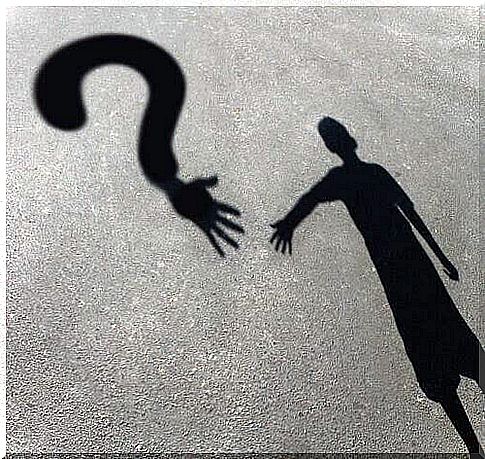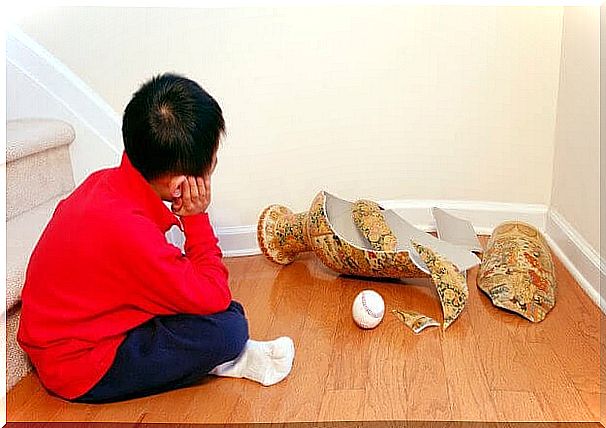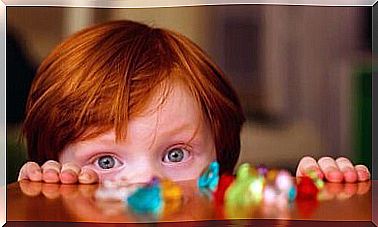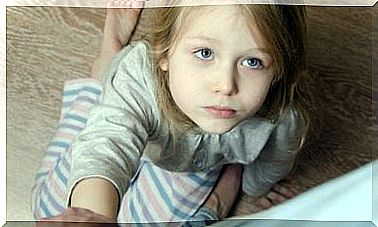My Child Has A Pretend Friend: What Should I Do?

A pretend friend is an inseparable companion who knows all the dreams, secrets and desires of a child.
These friends never betray the children and are always there to listen to them, comfort them and accompany them, no matter what time it is or where they are.
A pretend friend: A very real situation
The fact that a child has a pretend friend while growing up can sometimes come as a surprise to some families.
- Does my child feel lonely?
- Are we not paying enough attention to him or her?
- Is our child so worried about something that he or she needs to find a pretend friend to talk to?
- Why does he or she have to find a friend instead of finding one in real life?
It is not uncommon for parents to think that if their children make pretend friends, it is because there is something wrong with them or because they are alone.
These doubts about whether the care they provide their children are good enough cause parents to ask an infinite number of questions, which often only exacerbates the problem.
In the search for answers, these parents ask themselves if their child is the only child who has a pretend friend or if it is common among other children nowadays.
To clarify these and other doubts, continue reading.
What is a pretend buddy?
A pretend buddy is a character who is not real, but only lives in a child’s mind and acts and disappears according to each individual child’s needs.

Is it a consequence of a mental disorder?
Not necessarily because it is generally completely normal. These characters usually appear in children aged 2 to 8 years and then disappear over time. A few even have pretend friends up to adulthood.
But if you suspect that something with your child’s pretend buddy is not normal, we always recommend that you bring it up with BVC or another specialist. It is best to ask a child psychologist. This will be able to tell you if it is normal or a symptom of a deviation.
Are pretend buddies a sign of creativity?
Yes, pretend friends are fantasies that children invent and where there are fantasies, there is also creativity.
A pretend friend is like a doll that has come to life, a character that is completely made up, a fictional animal… they can have incredible “physique” and do things that no one else can.

What should I do with my child’s pretend friend?
Nothing, absolutely nothing. A pretend friend is not something that should worry adults. On the contrary, it can be a good thing that the child has a “companion” to play with and talk to.
If the child is doing badly or something is going wrong in his or her life, having a pretend friend or two can not get worse.
The parents should behave naturally and even talk to the imaginary friend. Just as they would interact with their own child. It is not good to ignore it, reject it, or quarrel with your child every time he or she “calls” his or her pretend friend.
Do not insist that this friend does not exist either. Do not say that it is a lie or that your child is just making it up. Most children are fully aware that it is not for real, but it is probably so important to them anyway.
A pretend friend can be an important part of childhood. It is part of the child’s development, and should primarily be accepted by the whole family.
You just have to be more discriminating with the help you render toward other people. It is important that your child learns to take responsibility for his actions and not blame his fictitious friend.
When should I worry?
As we have mentioned before, every family knows their family members best. So you should listen to your intuition to know if the imaginary friend is not normal. In such cases, you should seek the help of a specialist. BVC can help you get in touch with the right person.
You should talk to your child or consult a psychologist when:
- The child plays with his pretend friend almost exclusively on recurring themes. Especially if these themes are not appropriate for his or her age, such as death.
- Your child wants to be with his pretend friend more than with his real friends.
- The fictional friend has “bad ideas” and always does bad things that put the child in danger.
- Your child does not have any real friends and does not know how to get along with other children at school.
The presence of pretend friends
About half of all children in the world have had a pretend friend at some point in their lives (either for long periods or on specific occasions).
Some create a fictional friend who can accompany them all the time. Others evoke a playmate when they need one, while others have them for a while and then forget about them.








